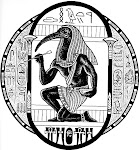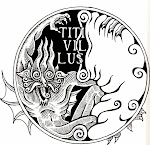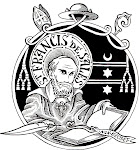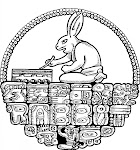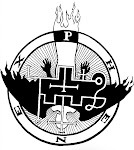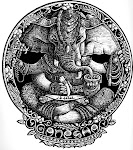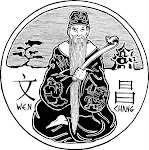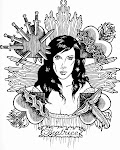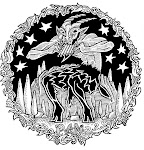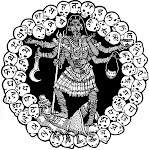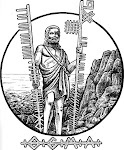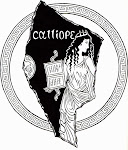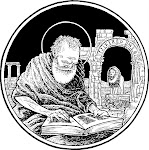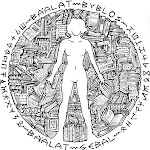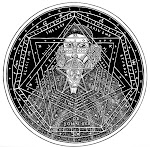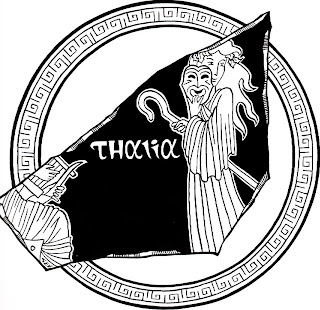
These illustrations represent eight of the nine traditional Greek muses. Depending on the tradition, their numbers vary.
http://www.theoi.com/Ouranios/Mousai.html.
Each of the muses here has influence over a form of writing. Only Terpsichore, the muse of dance, is missing, though if you put the shards together you’ll see she’s not entirely absent from the group.
The literary domains represented here include: Calliope, muse of epic poetry; Clio, muse of history; Erato, muse of lyric and erotic poetry; Euterpe, primarily the muse of music, also the muse of lyric poetry; Melpomene, muse of tragedy; Polyhymnia, muse of hymns and sacred poetry; Thalia, muse of comedy and bucolic poetry; and Urania, the muse of astronomy who also became the favourite muse of Christian poets, thanks to the influence of writers such as John Milton.
More about the muses:
http://en.wikipedia.org/wiki/Muse.


